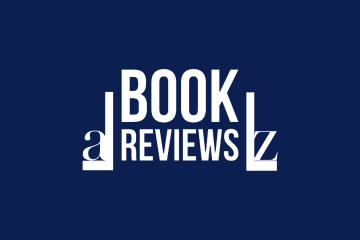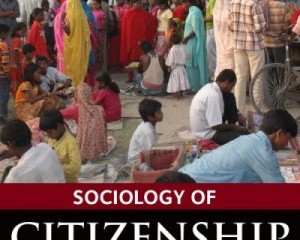
Wake Up Europe! Why Britain should stay engaged and transform the EU
Wake Up Europe! Why Britain should stay engaged and transform the EU
Play Episode
Pause Episode
Mute/Unmute Episode
Rewind 10 Seconds
1x
Fast Forward 30 seconds
00:00
/
Subscribe
Share
RSS Feed
Share
Link
Embed
Download file | Play in new windowThe UK has a crucial role to play in the debate over how the EU should be reformed. This session engages in a conversation as to why and how.

Democracy, Development and Income Distribution
A Review of Inequality and Democratization: An Elite-Competition Approach, by Ben Ansell and David Samuels In this dense and absorbing review, Professor Ben Ansell explains how past and current models have failed to capture the paradox that development may lead to greater income inequality. He explores the roles of actors and structures in his own approach to the study of this relationship and casts a critical light on the plight of those who live in poverty despite democratization. Turning to the other end of the income spectrum, he discusses the global trend towards capital mobility and how it relates and affects different political systems. Overall, Inequality and Democratization raises a number of critical and highly relevant questions concerning the relationship between …

The Democracy Commission: practically teaching democracy
The institutions, technologies and practices of British democracy are, for the most part, inventions from before the time of universal suffrage. In the fluidity and fracture of the 21st century, it is clear this democratic inheritance has become increasingly inadequate. Sharp, sustained differences in participation and voice by age, class, ethnicity and region have become entrenched. Politics has professionalised, class identities have weakened, and political parties have drifted from their anchors in civil society, left ‘ruling the void’. Reinforcing the post-democratic drift, the evolution of the UK’s political economy has shrunk the potential scope for and influence of collective political action and democratic participation. The general election clarified our evolution towards a divided democracy. As IPPR’s new report into political inequality shows, less …

Book Review: ‘Patronage as Politics in South Asia’ by Anastasia Piliavsky (ed.)
In March, Uday Chandra of the Max Planck Institute reviewed ‘Patronage in Politics in South Asia’ for our Migration and Citizenship. In this post, I want to respond with my own analysis of the book’s arguments. It is true, as Anastasia Piliavsky points out in her superb introduction, that patronage has long been treated as a distasteful element of developing societies. Personalised exchange between social unequals has been viewed as either a perversion of liberalism’s central tenets of equality and freedom of choice or as a screen concealing exploitation. Quid pro quo electoral exchanges, in which votes are bartered for particular services rendered, are considered ‘bad’ democratic practice. And of course, the use of public power for private gain is unequivocally condemned as corruption. It …

Iceland’s unfinished revolution? An interview with Hordur Torfason
In this Q&A, I discuss the prospects for ‘unfreezing’ the draft new constitution with Hordur Torfason, the award-winning human rights activist credited with starting Iceland’s ‘pots and pans revolution’. You’re credited as the person who started the “pots and pans revolution” in Iceland. How did the protests start? I’m 70 years old this year. I started becoming an activist around 20 years old. Not that I wanted to become an activist, not at all. But I’m gay and it tells you a story that I’m the first gay man in the history of Iceland who steps forward. When I was 30 years old I was very famous. Everybody knew my song. I was on television, radio, doing concerts, LPs. I was …

Magna Carta: a beggarly thing, a mess of pottage
That in 2015, we still commemorate an agreement between the king and the barons of England reached 800 years ago, probably on the 15th June 1215, is a cause for wonder. Magna Carta, the Great Charter, as that agreement has come to be known, is held to be a milestone in the course of western constitutional thought. Its place in English jurisprudence is secure, but, while prominent, hardly matches the reverence it is shown on the other side of the Atlantic. Among the range of subjects covered by Magna Carta, three stand out for their constitutional importance: liberty, the rule of law and due process in the administration of justice, and taxation. On liberty: Chapters 39 is most famous in protecting liberty from arbitrary arrest and related …

A Magna Carta for learning disabled people
800 years of Magna Carta but learning disabled people remain ‘villeins’, denied rights against arbitrary power. What would a Magna Carta for learning disabled people look like? Who are the ‘villeins’ today? No free man shall be seized or imprisoned, or stripped of his rights or possessions, or outlawed or exiled, or deprived of his standing in any other way, nor will be proceed with force against him, or send others to do so, except by the lawful judgement of his equals or by the law of the land. To no-one will we sell, to no one deny or delay right or justice. 800 years ago this set of freedoms was made law. Although Magna Carta is widely believed to have been …

Law, Legitimacy and Morality of Warfare: A Conversation about ‘Legitimate Targets?’
In the following conversation concerning her recent publication, Dr. Janina Dill, Departmental Lecturer in International Relations at the University of Oxford, navigates a clear-cut path through concepts of International Law (IL), legitimacy and morality in warfare. From a theoretical perspective, she explains the relationship between constructivism, IL and international relations and highlights how our understanding of this relationship may be better informed through new concepts such as ”behavioural relevance” and “normative success”. From a practical perspective, she examines the historical shift in the conduct of warfare and the use of drone warfare by the United States. In response to Brett Rosenberg’s questions, Dr. Dill contemplates whether there are in fact legitimate targets in war. Many have argued that International …









